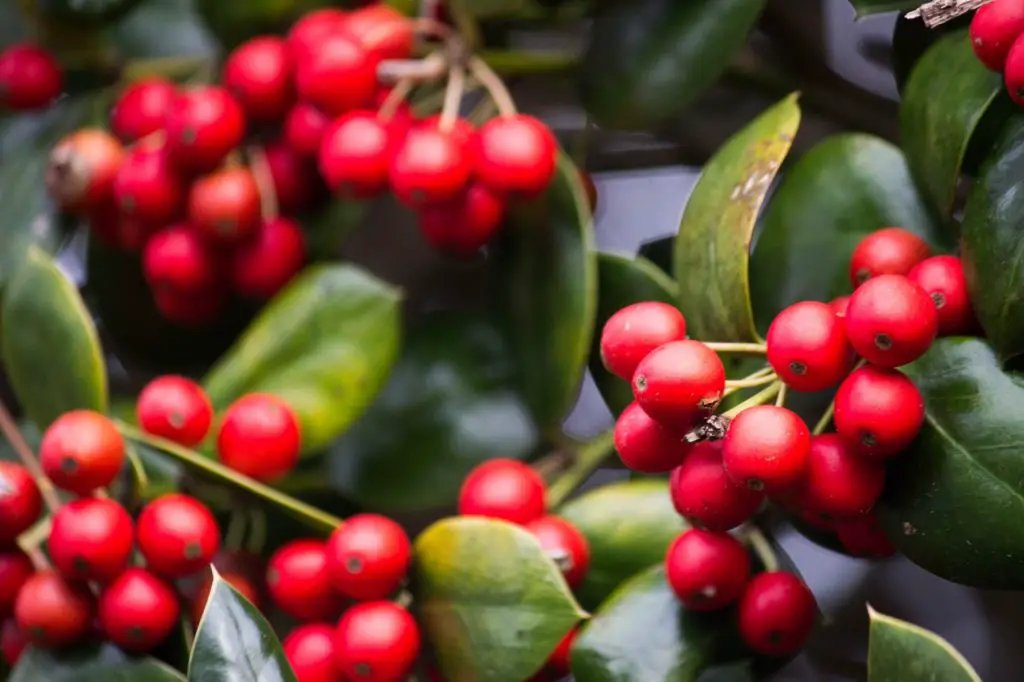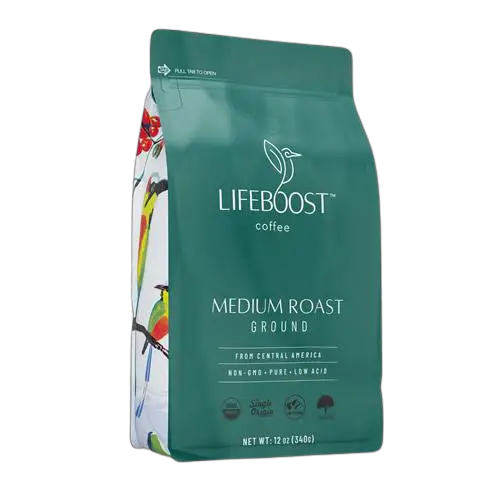The difference between organic and regular coffee can be confusing. But it doesn’t have to be!
In this post, we’ll break down what makes organic coffee different from regular coffee, how these differences affect farmers and consumers, and some alternatives for those who want to go organic but don’t want to give up their favorite drink.
The benefits of going organic with your morning cup of joe are incredible, and if you’re not sure where to start or need a little help finding an alternative that suits your tastes, you’ve come to the right place.
What’s the difference between organic and regular coffee?
Organic coffee beans are grown without any synthetic pesticides or fertilizers. It’s also shade-grown, which means it grows in the shade of other trees instead of being grown in wide stretches of farmland. Because organic coffee isn’t cultivated using synthetic fertilizers, it may have a slightly lower yield than conventionally-grown coffee.

This is why you might hear some connoisseurs claim that organic coffee has a more complex flavor.
Organic farmers are also required to manage their soil responsibly, by replenishing its minerals via crop rotation, cover crops, composting, mulching, and other methods.
All of these practices are meant to keep soil healthy and provide nourishment and sustenance for the coffee tree.
What’s different about organic vs regular coffee?
| Organic Coffee | Regular Coffee |
|---|---|
| shade grown without pesticides or fertilizers | grown in wide stretches of farmland using pesticides and fertilizers. |
| lower yield because no use of synthetic fertilizers. | higher yield because of synthetic fertilizers |
| coffee tree receives nourishment from healthy soil management practices such as crop rotation, cover crops, composting, mulching, etc | coffee tree receives nourishment from synthetic fertilizers. |
Fungicides, pesticides, and chemicals
Regular coffee may be grown in wide stretches of farmland and contain little to no shade, but it does come with downsides.
Because the coffee plant is grown in such large quantities and lacks the shade of other trees, it’s more susceptible to fungus and disease. To combat this, many conventional farms use chemical pesticides and fungicides on their plants.
Some of these chemicals are thought to be carcinogenic, or capable of causing cancer.
There is also the potential for residue from these chemicals to remain on the coffee beans after they’re processed and roasted.
Many conventional farms will also use chemical fertilizers to help boost yield, which can include harsh pesticides that leave trace amounts on the beans.
Organic coffee is healthier for everyone
Organic coffee is better for the environment because it doesn’t use harmful chemicals on its crops, which helps keep the soil healthier.
Not only does this protect future harvests of organic coffee, but also protects wildlife that lives in that area.
By using crop rotation, composting, mulching, and other natural methods to care for the soil, organic farmers are also helping the environment by reducing greenhouse gases.
This is because healthy soil absorbs carbon dioxide, a major greenhouse gas that contributes to climate change.
Organic coffee helps keep wildlife safe from harmful chemicals and can help reduce greenhouse gases.
Naturally, if organic coffee is better for the animal and plant life around it, it’s also better for the farmers who spend day and night growing it!
Organic coffee tastes better
There are a few reasons why organic coffee tastes better. Organic farmers typically have less yield, which means they focus on quality rather than quantity.
They also use natural methods to care for the soil and keep their crops healthy, as well as using shade-grown techniques that help create a more complex flavor profile with subtle hints of fruit or spice.
In addition, because organic farming doesn’t use synthetic fertilizers or pesticides, there’s no risk of chemical residue left on your beans after roasting.
You’ll know you’re drinking an authentic cup of java when it really is just pure goodness from the earth!
How is organic coffee grown?
First, organic farmers focus on growing their beans with the shade of other trees. This helps deepen the flavor, which means it has a more complex taste than regular coffee.
Organic farms use crop rotation techniques to ensure that the soil is properly nourished by switching up what they plant in a particular spot.
Cover crops and mulch are also used to retain nutrients in the soil, as well as prevent erosion.
While organic growing does require more labor than conventional coffee farming, it has been shown to have a higher yield over time for this reason.
How is regular coffee grown?
Regular coffee can be grown in wide stretches of farmland, lacking shade from other trees.
Since the plant is not shaded at all, this puts it at higher risk for disease and fungus which must be fought against using fungicides, pesticides, and chemical fertilizers.
Why is organic coffee so expensive?
The reason why organic coffee costs more than regular is simply because the process requires much more labor and care, as well as the fact that it’s typically grown in smaller quantities.
The cost of organic coffee is usually about twice as much as regular coffee.
Does organic coffee have caffeine?
Yes, organic coffee will have caffeine just like regular coffee. The beans are the exact same as would be yielded using traditional farming methods, so there is no difference in the caffeine content.
Can decaf be organic?
Decaffeinated means that the beans have been processed with chemicals to remove the caffeine from them, so you may wonder if it’s possible to find organic decaf coffee.
Two of the most common chemicals used in decaf production are Ethyl Acetate and Methylene Chloride.
Ethyl Acetate is typically made from either fermented grapes or acetic acid, which is the main component in vinegar.
Methylene Chloride has more potentially dangerous side effects, and is a possible carcinogen.
Neither of these chemicals are approved for use on organic food products. While conventional decaf coffee isn’t going to be the same as regular coffee in terms of caffeine or flavor, it can have more chemical residue than its organic counterpart.
Some decaf coffees are made with swiss water, which is a process that uses only water to decaffeinate the beans.
So decaf can be organic as well because all it means is that the beans were decaffeinated using a chemical-free process.
Lifeboost Organic Coffee

Lifeboost Organic Coffee is one of the best organic coffees out there. It is made using organic, fair trade coffee beans that are processed in the best way to keep them chemical and mold-free.
There are no preservatives or additives used to keep it fresh after roasting or processing.
Lifeboost coffee is also low acid and free of mycotoxins, which are toxins that grow on coffee beans after they have been harvested.
Lifeboost’s coffee beans are free of these fungi that can have adverse effects on your health in the long term.
The only downside to Lifeboost is that it is very expensive, which can make it difficult for those on a budget to buy. However, it is well worth the price for those looking for a healthier alternative.
Conclusion: is organic coffee absolutely necessary?
Organic coffee is more expensive and may not be available everywhere. One could also argue that organic coffee may be healthier, but it might not keep you away from the doctor’s office any longer than drinking regular coffee.
If you’re trying to save money or live in a place without access to organic beans, then opting for an organic-only lifestyle may be difficult.
However, if your budget allows and you don’t mind sacrificing a little more money to get better coffee beans, then organic coffee is definitely worth it.

